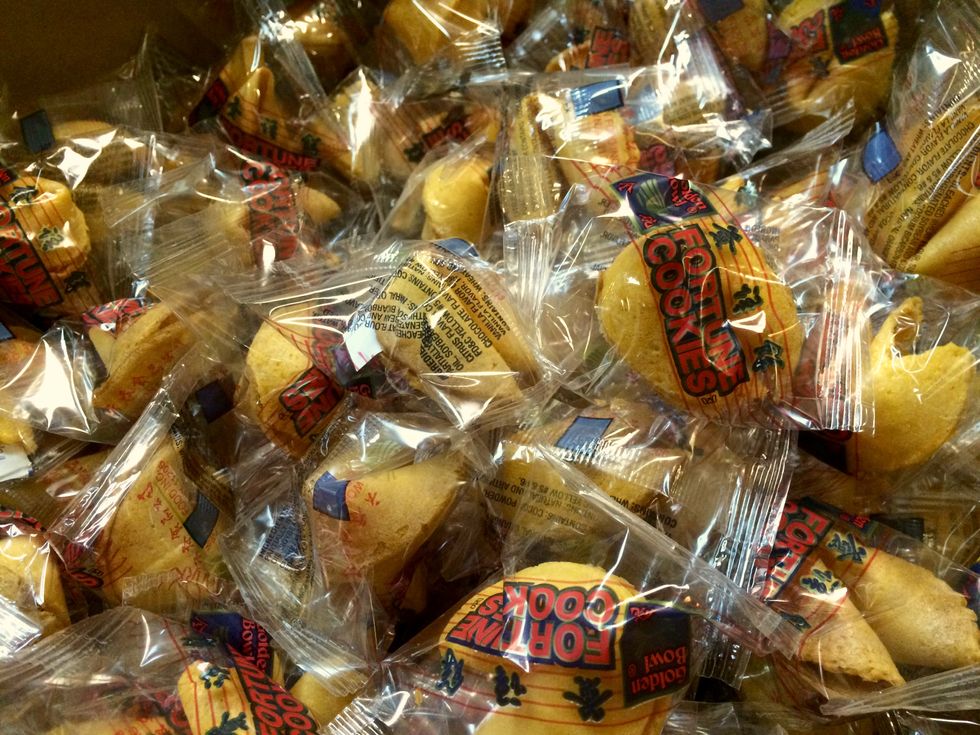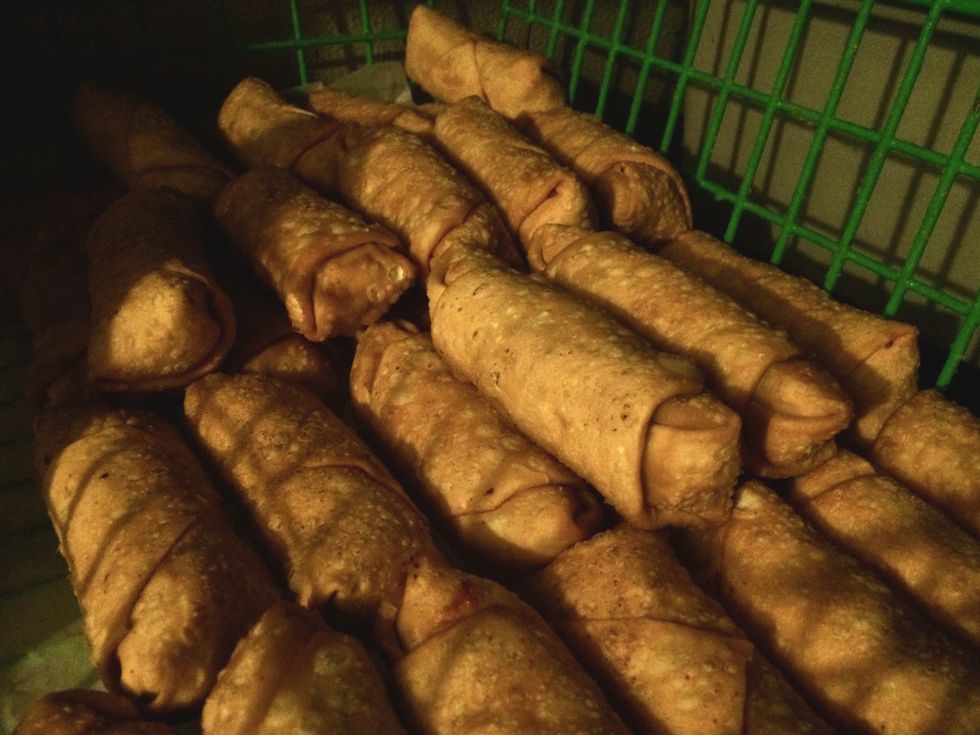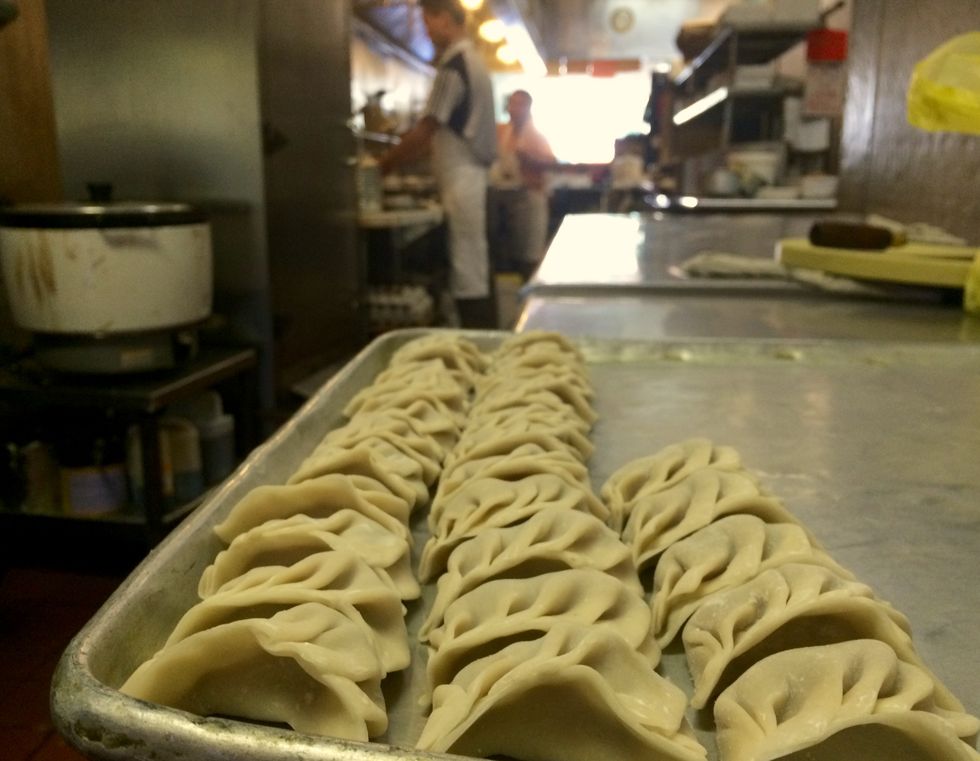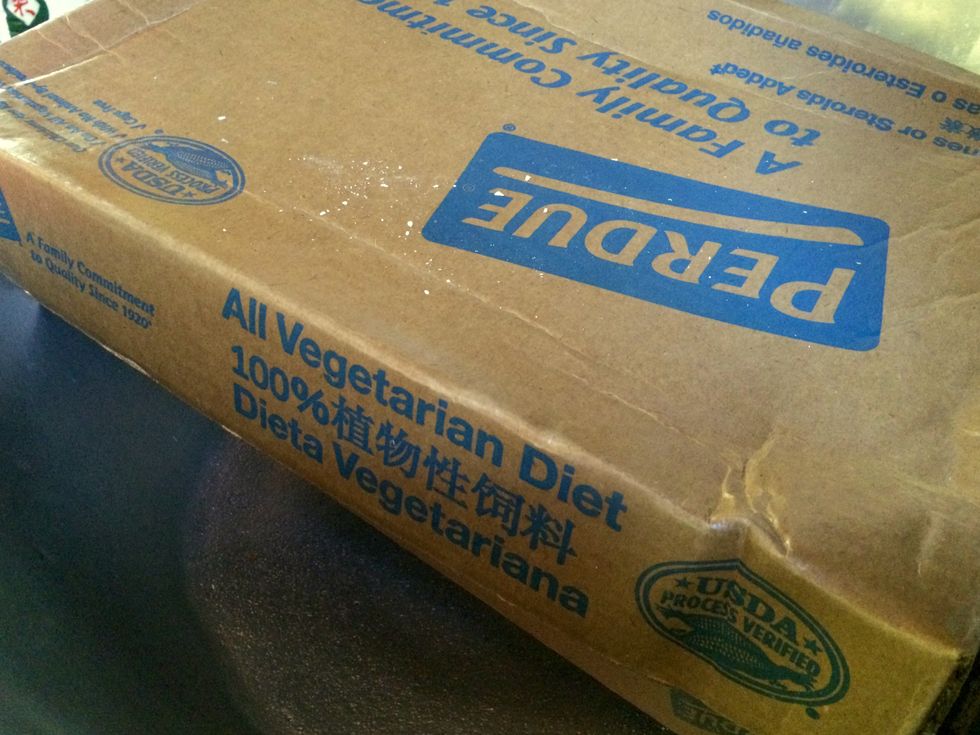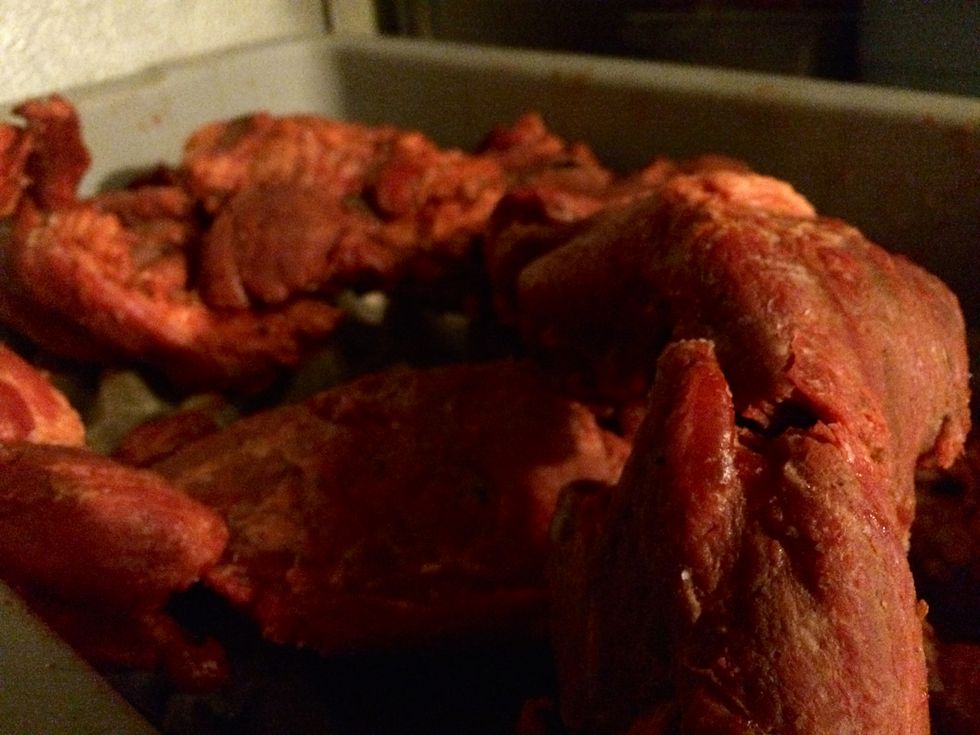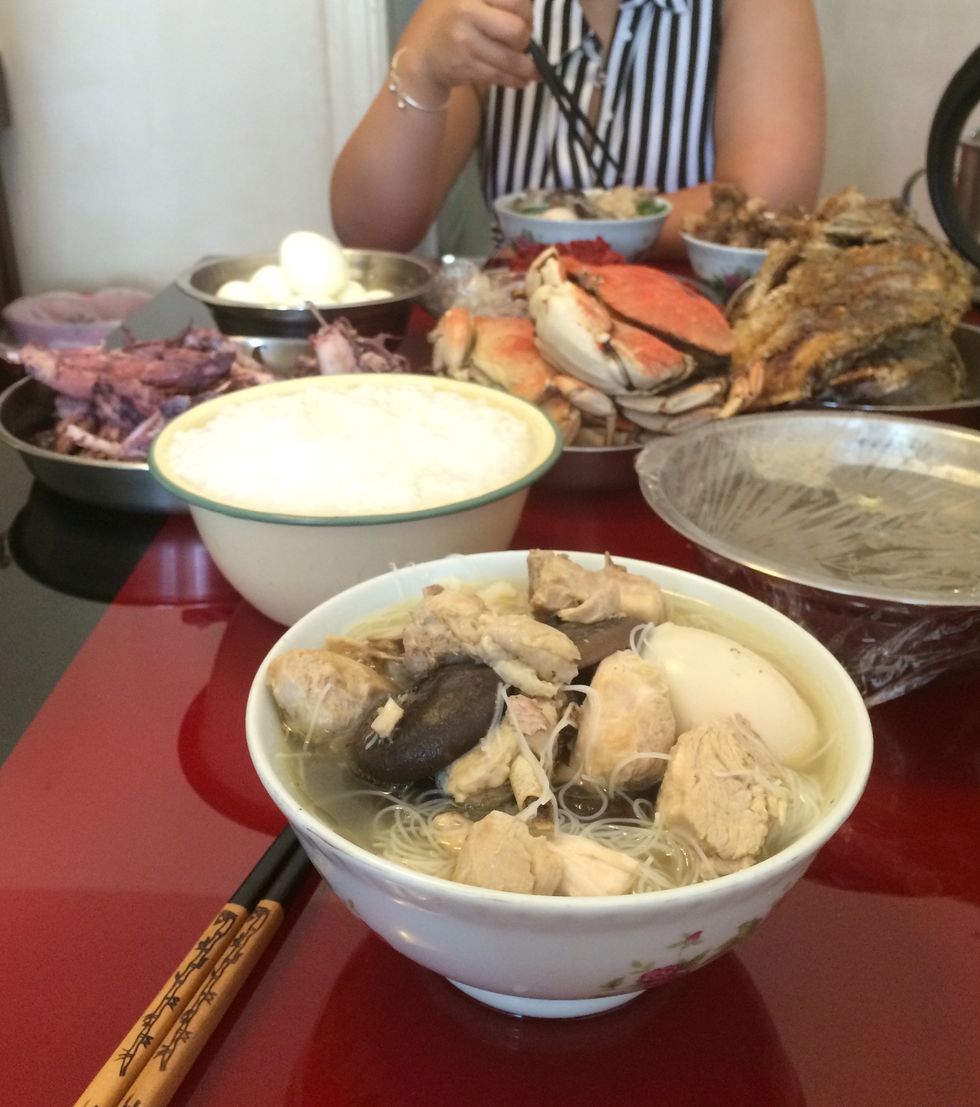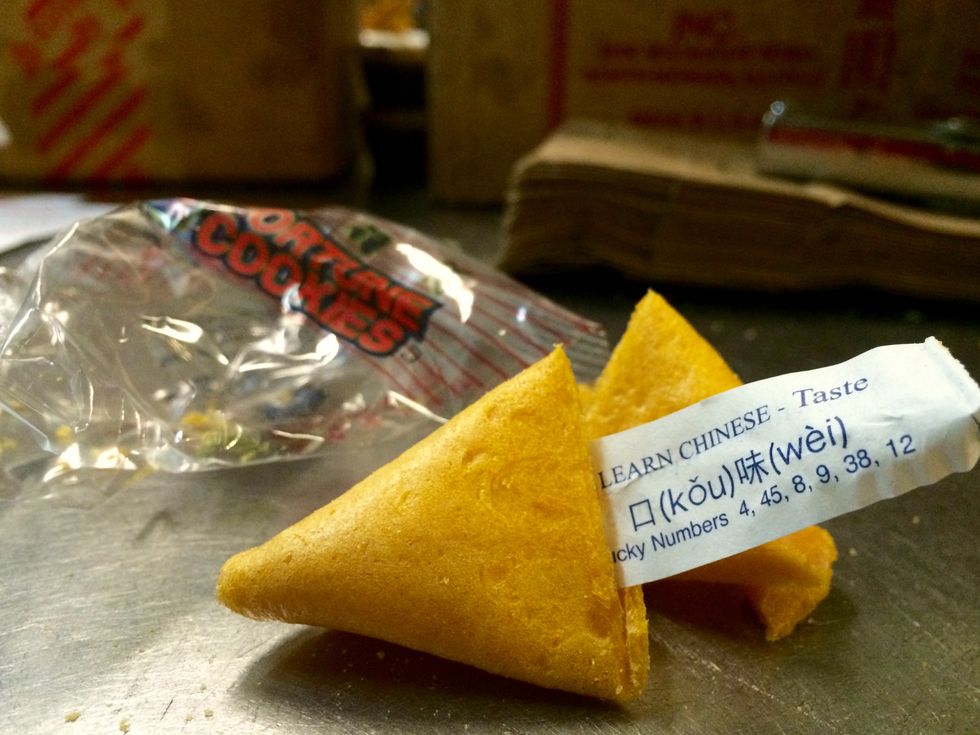Everywhere you go, you're going to find Chinese people. Chances are, 1 in 5 Chinese people whom you meet are children of Chinese take-out restaurants owners or have family members who own Chinese take-out restaurants. So why is it that we're still left wondering what it's like behind those typo-ridden menus and take-out boxes? As a semi-proud child sprung from fortune cookies, I can answer all the questions that your fortunes can't.
We do not write your fortunes.
It's my dream to write fortune cookie fortunes, and no lie: they would be the best. Alas, they're individually wrapped with a company logo on it--do you think we collectively own an industrial factory for the sake of making little cookies that we give out for free in addition to working twelve hours a day, seven days a week? We may be little and hardworking, but not that hardworking.
We make other stuff though!
We do, however, make our own egg rolls. From what I've seen, most places make their own wontons, dumplings, and broth, too. And those alone take days of preparation.
Dogs, cats, rats...don't go in your food.
The stereotype must have originated from the fact that the mass population of China used to be butt-poor. We have been using ravines and holes in the ground as our toilets for way longer than we should have been, and squat toilets are still widespread throughout the China I've seen. It makes sense, then, that we were hungry for some protein. With prices for pork and chicken and especially beef, duck, and seafood being out of budget for poverty-ridden China, we turned to stray or wild animals. It was desperation that drove us to eat such meats, not a desire to indulge in dirty rodents or friendly pets.
Like other places, we rely on meat monopolies.
Our ingredients are delivered fresh at least 6 days a week (or from Restaurant Depot), and the brands we receive are Perdue, Tyson, Smithfield, and Certified Angus Beef. If you've seen the documentary Food, Inc. on Netflix, you know that all U.S. meat comes from only a select few companies anyway, despite the plethora of choices we have at the supermarket. That said, Chinese people with limited English are not going to go out of their way to find sketchy meat companies to use at their restaurants.
Additionally, our meat comes into our restaurants raw and whole: the slices of chicken in your chicken and broccoli and General Tso's chicken, the medallions of boneless ribs; they're all personally prepared in our kitchens. We take whole chickens and separate the meats that we want and don't want; we selectively slice our beef to contain the right amount of marbled fat and flavor absorption; we marinate, roast, and grind our pork on the site to ensure tenderness.
We may cover it all up with soy sauce and garlic, but the love is there.
Sesame chicken for days? Not for the Chinaman.
Don't we all wish we could eat Chinese food every day guiltlessly, without becoming lethargic? Unfortunately, Chinese people are not the exception. Authentic Chinese food may have the same flavor palate as take-out food, but Chinese immigrants honestly like their fish with the head and bones and their chicken with the skin and bones. They also like their noodles in hot soup and their rice watery.
We like to tease you with bits and pieces of our culture.
Soy sauce, rice vinegar, garlic, sesame oil: a Chinese kitchen is starved without these. Everything from carrots to mushrooms to bok choy are all vegetables that a Chinese immigrant would recognize, although prepared in different ways. We also do eat chicken and we do eat broccoli, but we just don't have a dish called "chicken and broccoli." As for General Tso's Chicken and its origin (for there is indeed a general whose name is Tso!) check out Netflix's documentary The Search for General Tso--the most classic question, answered.
Culinary or business school? Naahhhh
Some Chinese take-out restaurant owners do indeed have official background training in culinary arts and knowledge of how businesses work, but personally, I find that to be rare, especially for immigrants who have come straight from China just hoping for better financial stability.
Rest assured, there are restaurant training companies in Chinatowns all over the United States that help these immigrants learn the basics of food safety and handling and then connect them with restaurants nationwide. Maybe there isn't a big emphasis on presentation or restaurant atmosphere, but the most important thing is that we know how to take care of what you are ingesting.
Yes, we love our customers.
You may call in for take out and be frustrated that the receiver may not understand your specific requests; you may get a delivery and find that you got pork fried rice instead of plain fried rice; you may walk into a take out restaurant in the summer and find that it's even hotter inside the restaurant than it is outside, only to be more disappointed by the brutishly abrupt service you receive.
It doesn't feel right, and that's not how people should interact, especially for business.
Trust me, though, it's only because of the language barrier. While some immigrants who have been in the U.S. for an adequate amount of time have picked up on the workings of the English language past "small or large?", many immigrants who have only recently embedded themselves outside of the ghettos just haven't had the time to learn about the English language--and the manners that come along with it.
Along with the language barrier comes the fear of being in a foreign environment surrounded by people and customs you don't understand. Imagine owning a bakery in some random town in a foreign country without ever having been there before--bringing your whole life there, sometimes even your family--so that you can make a better living there than where you were before. There will indubitably be some trust issues, and for some people, putting up a wall between themselves and strangers is their automatic coping mechanism. I'm not saying it's right, but it's at least understandable.
Don't get discouraged next time you interact with Mr. You. He knows your food, he takes care of it, and he appreciates your business. He just keeps all the gratitude inside the cookie. It's your job to crack it open.

